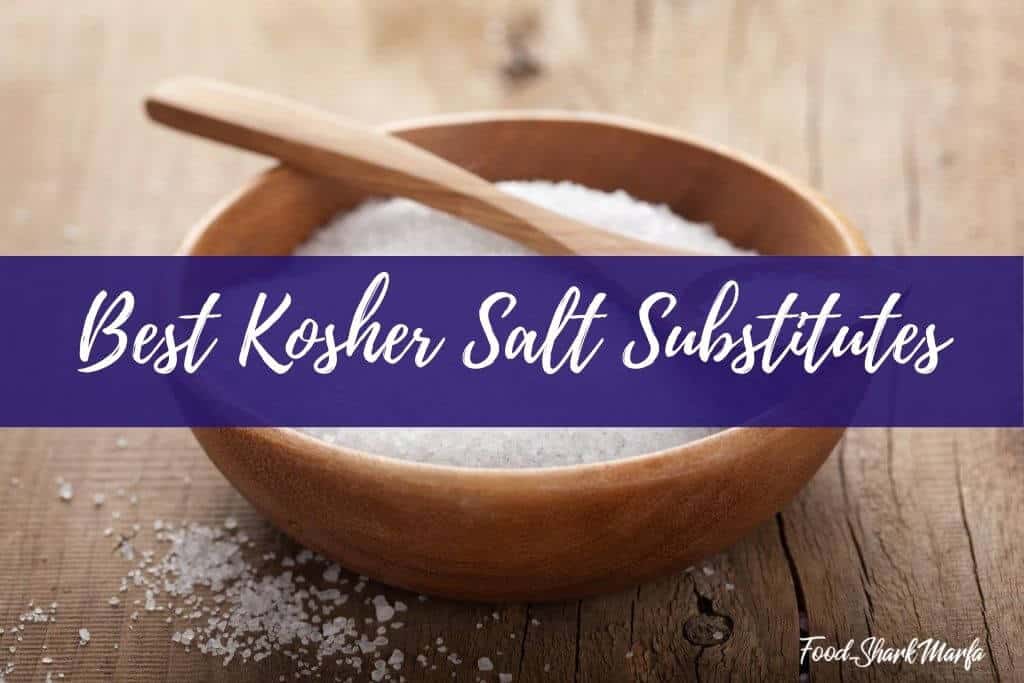I have strong opinions on which salt to use in cooking or baking. It’s something I’m asked about often.
Before you think salt is boring, I promise you’re going to want to read this through. Finding the right salt can be a game changer in the kitchen!
Substitute half as much table salt for kosher salt. If your recipe calls for Diamond Crystal kosher salt (a chef’s favorite) but all you have is table salt, half the amount of salt in the recipe. Keep in mind that the table salt will be slower to dissolve and might add metallic flavors.

Refined vs. unrefined salt
Refined salt is made by quick evaporation which leads to small, dense, and more uniform and granular salt crystals. Unrefined, natural, or minimally processed salt, on the other hand, involves a longer evaporation process resulting in light, hollow, and more uneven flakes.
So, it looks from your picture that you used coarse sea salt rather than kosher salt or table salt in the brine. Maybe that was the reason you found it a little salty. Glancing at the pork chop recipe again, I notice that it calls, rather vaguely, for “coarse salt.” That is remarkably non-specific, since different salts produce very different results. What? You want me to tell you all about it? Well, okay.
Table salt, kosher salt, and sea salt are all the same—sodium chloride, or NaCl for the periodic table geeks—and yet they are very different.
Sea salt is slightly confounding. Its name tells you the source, but not the size or crystalline structure, so its anyones guess how large or small it is, and how much “saltiness” it brings. You need to weigh it against table salt to be sure how much you should use in substitutions. After all, the salt you used, which is presumably a reasonable size for most cooking, is very different from fleur du sel, the monster-sized crystals with the monster price that are skimmed from the surface of salt ponds by flawless, identical Breton maidens in full-on folk dress (or at least thats how I picture it—to justify the cost).
Kosher salt, on the other hand, is big and clumpy, with a lacy structure, and usually has no additives, nutritional or otherwise. It needs the big, irregular flakes to do its primary job of koshering, which is the process of drawing residual blood from meat and poultry (pork need not apply) before cooking as prescribed by Jewish dietary laws. The large flakes sit on the surface of the meat rather than dissolving into it. Before I discovered brining, I was an avid kosher-salter when barbecuing.
Table salt has the finest and most uniform structure of tiny crystals, but it also typically has added iodide (a vital nutrient) and anti-caking agents to keep it from clumping up; remember, when it rains, this salt pours. That gives it a slightly less clean taste than the other salts, but unless youve got a preparation where the salt is truly front-and-center (like, oh, a brine), its not going to matter. Also, in a baking situation you want that smaller, more easily-dissolved crystalline structure. Check.
A Tale of Two Salts – Difference Between Table Salt & Kosher Salt in Recipes
FAQ
Can I use regular salt instead of kosher salt in bread?
Can I use regular salt instead of kosher salt for brining?
What happens if I use sea salt instead of kosher salt?
Can you use regular salt instead of kosher salt?
Yes, you can use normal salt instead of kosher salt. When using regular table salt as a kosher salt substitute, ensure you consider the granule size Kosher salt has a more coarse texture which means that a recipe calling for a tablespoon of kosher salt only needs half a tablespoon of normal table salt. What salt is closest to kosher?
What is the best store bought salt substitute?
If you are cutting down your sodium intake, you can switch to spices which have additional beneficial effects on health. Cinnamon is a spice that can be used instead of salt. You can use ground cinnamon or whole cinnamon which you can cut into small pieces. All types of onions, such as onions, garlic, or onions can also be a substitute for salt because they are very useful for providing a delicious and delicious taste in food. Chili can also be used as a spice instead of salt, because chili can strengthen the taste of food and make food savory.
Can kosher salt be used in baking?
When you use kosher salt, keep in mind that it doesn’t dissolve very quickly, which is why it shouldn’t be used in baking recipes. On the other hand, regular salt is used for seasoning the food as well as for baking. However, it’s not suitable for pickling or brining. Regular salt has a saltier flavor as compared to kosher salt.
Can kosher salt be substituted for sea salt?
Generally, it is recommended that you substitute 1 ¼ teaspoon of kosher salt that your recipe calls for with a single teaspoon of sea salt. Table salt is one of the most common seasonings that is found in the kitchens of many and because of this, it is one of the most readily available kosher salt substitutes.
